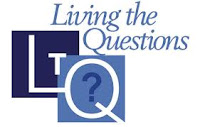 Focus: How one perceives the creation stories is not only critical to the way one looks at the Bible, but how one understands the purpose of creation, the essence of human nature, and the attitude one takes toward the environment in which we live.
Focus: How one perceives the creation stories is not only critical to the way one looks at the Bible, but how one understands the purpose of creation, the essence of human nature, and the attitude one takes toward the environment in which we live.The ancient Hebrews who composed what we now know as Genesis were brilliant storytellers – and although their writings have for generations been thought to explain the “how” of what happened historically, their stories are much deeper and richer when they are properly understood metaphorically as wrestling with the “whys” of human life.
When we delve into these ancient stories, we catch a glimpse of the answer to the eternal question, “What’s the meaning of life?” We are reminded that we are made in the image of the Divine – the one who brings order out of chaos and finds joy in the act of creating.
Creation as Story
In the beginning, God may have created the heavens and the earth, but not even the Bible is daring enough to claim exactly how it happened. In fact, Genesis begins with two distinctive creation stories that are impossible to synthesize or string together into consecutive events with any integrity. Neither one was ever meant to give a scientific account of how creation happened. Instead, they offer theological claims about the characteristics of the creator and poetic explanations as to why human beings are the way we are.
Each story grew out of different eras and reflects the purposes of two different “schools” or authors. Genesis 1 is the product of authors that scholars have dubbed the “Priestly” writers. Their rhythmic liturgical order of creation grew out of their experience in Babylonian exile sometime after 586 BCE. As a product of the exile and the apparent defeat of Yahweh by the Babylonian Marduk, it has even been suggested that Genesis 1 is a kind of “resistance literature” created to claim Yahweh’s superiority over all of creation. The second story, beginning with Genesis 2:4, is believed to have its roots in much older folk-stories of creation. The editors of this story refer to the creator with the name “Yahweh,” the distinctive Hebrew name for the Divine. As such they have since come to be known collectively as the “Yahwist.” The two sources present the story in totally
different styles. Where the Priestly author is interested in how things are organized and presents the origin of all things with a structured list, the Yahwist is a wonderful storyteller, often emphasizing humor and relationships as a vehicle for making theological points. Overall, the authors never intended to answer the analytical Greco-Roman question of “how?” but instead, in typical rabbinic fashion, set out to address the much more important question of “why?”
To receive a complete copy of the text used for the session, please contact Pastor Marj at daytonfirstcong@gmail.com. It will be sent as an email attachment for your perusal as opposed to printing multiple pages, a stewardship practice. Because of copyright law, we are not able to make the materials available here. Another option would be to purchase a copy of Felten and Procter-Murphy's newly-released book, Living the Questions: The Wisdom of Progressive Christianity from your local bookseller.
Questions to be considered in light of the video and readings:
According to McKenna & Fox, what are some of the purposes of creation stories in general?
Rossing suggests that the false conflict between creation and evolution is distracting us from what we should really be spending our energies on. Explain.
The Bible’s stories of creation can’t possibly be God’s stories of creation. Explain.
Levine points out that Genesis 1 is “clean” and orderly, while Genesis 2 is more “messy.” What are some of the defining characteristics of the two stories? What do the stories say about “partnerships” between creation, human beings, the Creator, etc.?
One of the major themes of the second Genesis creation story is “the Fall.” How has that concept been helpful or detrimental to the spiritual enterprise of Christianity?
A more traditional, dogmatic Christianity makes sin and redemption the focus of the Eden saga. Describe how Nelson’s suggestion that failure to accept responsibility for one’s own actions is an equally persuasive thematic emphasis.
